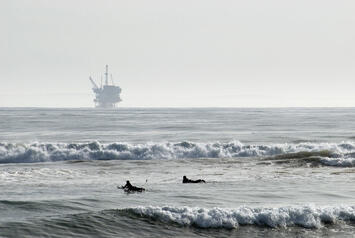
It is the global climate-change conference that no one cares about. The latest United Nations (UN) ‘conference of the parties’, otherwise known as COP29, is currently being hosted in oil-rich, authoritarian Azerbaijan. Not many political heavy-hitters have decided to attend but assorted elites, grifters and media have attended hoping it will bring them more financial manna from heaven.
The late-19th-century US political wire-puller Mark Hanna once quipped: ‘There are two things that are important in politics. The first is money and I can’t remember what the second one is.’ Billions, potentially trillions, have been sunk into green projects enriching the already wealthy and their nonprofits, in what outgoing US treasury secretary Janet Yellen has proclaimed the greatest business opportunity of the 21st century.
Hopefully, Yellen didn’t put all her financial eggs in the green basket. The election of Donald Trump as US president only adds to the current woes of the climate industry. The wind-energy sector is increasingly beleaguered and huge numbers of climate start-ups are failing. Despite receiving billions in subsidies, green companies are recording big losses, declaring bankruptcy or avoiding new projects – even in China. Yellen’s opportunity of the century is becoming its most obvious bust, with little apparent impact on the climate.
Of course, the green industry will keep going, as long as there are funds to subsidise it. The alliance between big corporate interests and activist bureaucracies has created what political scientist Bjorn Lomborg has labelled the ‘climate-industrial complex’. As energy analyst Robert Bryce points out, parts of Wall Street have been ‘feeding at the trough’ and will lobby Trump and Congress to keep some of their goodies. At the same time, some deep-blue states, like California and New York, are girding themselves by issuing their own green regulations to replace those that might have come from DC.
The only major country set to benefit from the ‘energy transition’ is China, which continues to spew more greenhouse gases than all advanced countries combined. It is using efficient, cheaper fossil fuels to dominate the solar-panel industry, building its battery capacity to roughly four times the size of America’s while exercising effective control of rare-earth minerals and the technology for processing them.
All this leaves the rest of the world, notably Europe and the UK, embracing a Net Zero strategy that is fundamentally unfeasible without imposing massive costs on the middle and working classes. One particularly dubious aspect of Europe’s all-electric policy lies in the energy grid. According to the Financial Times, UK businesses are already having problems getting extra juice. EVs, which are projected to double the demand for electricity by 2040, will only increase the pressure on the UK’s grid. The Labour government is already looking to ban the use of home chargers during peak hours.
The working classes in Western nations have particular reason for concern. In the UK, the path to lower emissions has been driven by deindustrialisation. The manufacturing sectors’ share of GDP has dropped by 50 per cent since 1990, at the cost of several million jobs. This parallels a two-thirds drop in the UK’s domestic energy production. It now increasingly depends on energy imports from the Middle East and other unstable regions.
Read the rest of this piece at Spiked.
Joel Kotkin is the author of The Coming of Neo-Feudalism: A Warning to the Global Middle Class. He is the Roger Hobbs Presidential Fellow in Urban Futures at Chapman University and and directs the Center for Demographics and Policy there. He is Senior Research Fellow at the Civitas Institute at the University of Texas in Austin. Learn more at joelkotkin.com and follow him on Twitter @joelkotkin.
Photo: Berardo62 via via Flickr, under CC BY-SA 2.0.












